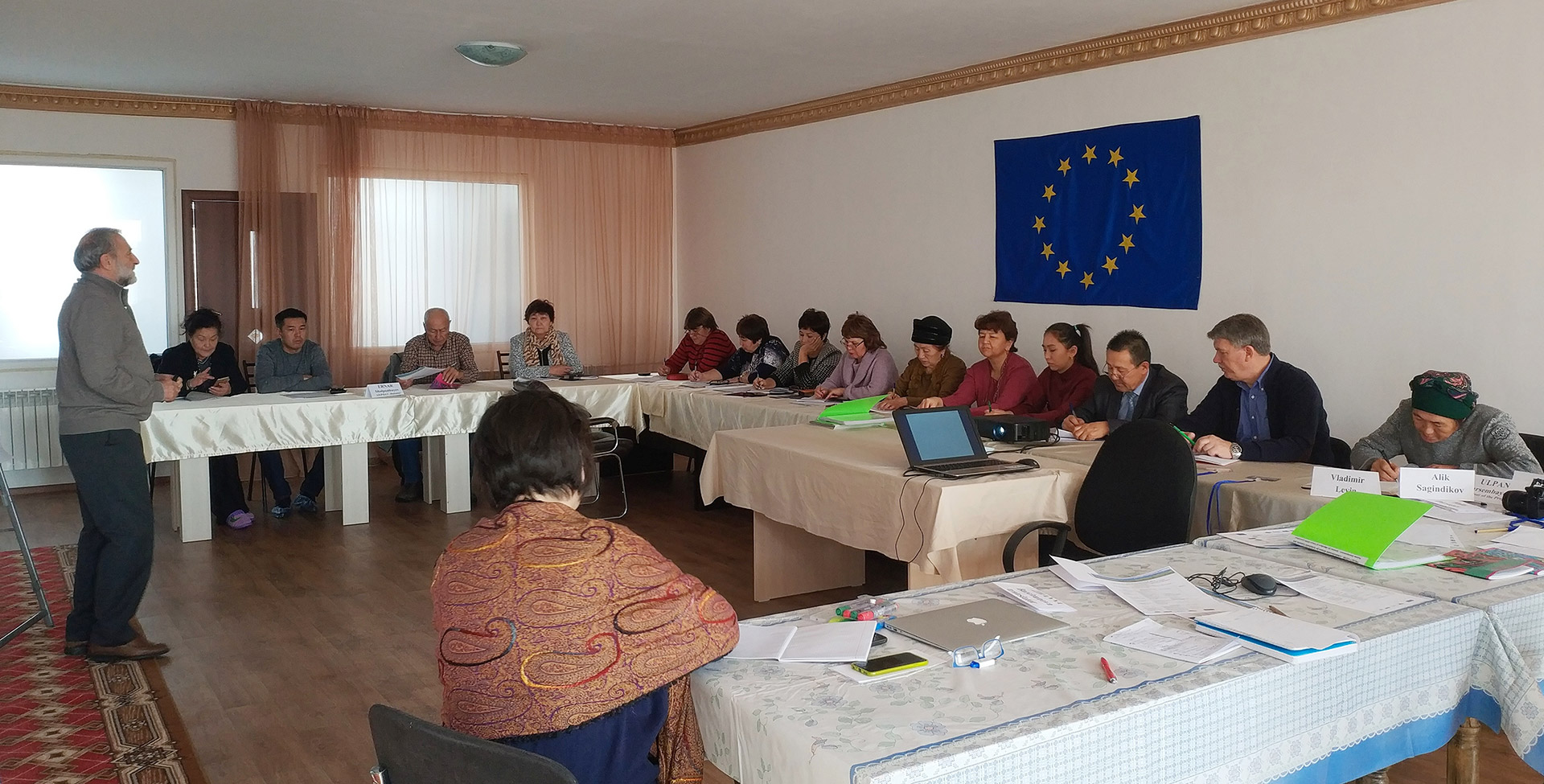At the end of two workshops held at IEAWO Resource Centre in the village of Enbek, in Enbek-Kazakh District from the 20th to the 24th of November, the local actors of the district, constituted in a "Steering Committee", have signed an agreement to create a legally recognized organization named ODAK (in Kazakh "union") to promote and support the territorial socio-economic development and a "One-Stop-Shop" with the function of coordinating the services and guaranteeing a more effective disbursement for the benefit of the producers and the population.
These activities are part of the ODAK Project, funded by the European Union, and where the strategic development guidelines for the apple, vegetable, soy and corn, and milk value chains were defined and shared.
The seminar was held in two parts.
The first part, regarding the establishment of ODAK, was attended by 22 people, representing the value chains of apples, vegetables, and soya and maiz, the colleges, the NGOs, the service-providers, the municipality of Essik (capital of the district), the governorates of the district and of the Almaty region, research and financial institutions, a milk cooperative.
In the latter part, regarding the establishment of a One Stop Shop, other 12 service providers joined the participants.
The seminar was attended by Snejana Popova, representative of the European Union delegation in Kazakhstan, who greatly appreciated the work done and encouraged it to continue.
The ODAK is defined as "The collective capacity of the local actors of the Enbek-Kazah district in promoting and supporting competitiveness, sustainable and inclusive development" and its aim is to "facilitate economic, socially and environmentally sustainable development of the district (mainly in agriculture value chains), through improving competitiveness and productivity of the local resources, introducing and managing innovation.
The seminar was organized by the ODAK Project Kazakh partners IAEWO and FKF. Giancarlo Canzanelli and Vincenzo Milio of KIP/ILS LEDA, and Francesca De Paula of Formaper introduced the discussion, also showing the European best practices, and facilitated the decision of the participants.
A plan of action for the ODAK Alliance was established in order to implement the chosen value chains’ strategy, and it will include both specialized support, training, and activities aimed at fostering innovation.

